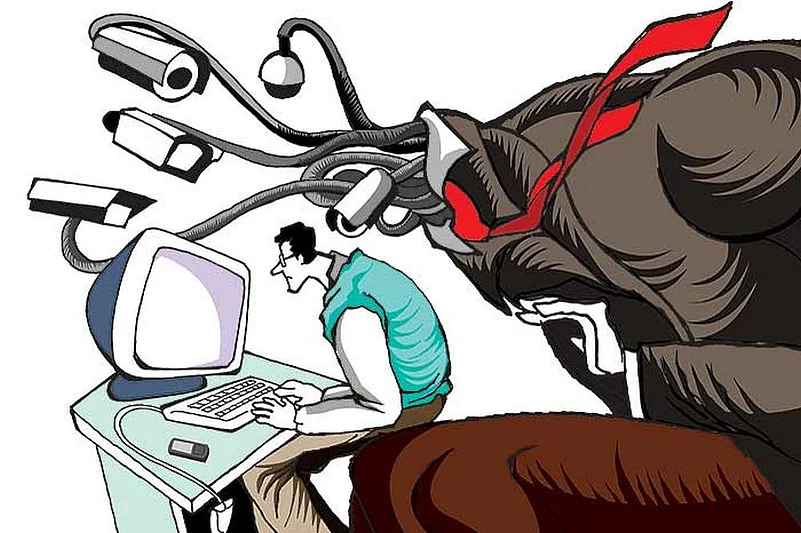A petition filed by Karmanya Singh Sareen and Shreya Sethi has challenged a Delhi High Court ruling that gave WhatsApp’s updated privacy protection policy a clean chit in 2016. Sareen, an engineering student, is the son of additional solicitor general Maninder Singh and senior advocate Pratibha M. Singh.
A bench of Chief Justice of India Justice J.S. Khehar and Justice D.Y. Chandrachud has asked the central government, WhatsApp and Facebook to respond to the petition.
WhatsApp had a more stringent policy in place till 2014, when it was acquired by Facebook. Before the acquisition, the app and its usage was governed by state laws of California, where it was developed.
Advertisement
The new privacy policy allows Facebook to access WhatsApp both content and the meta-data of users. This includes details of contacts in WhatsApp users’ mobile phones, call logs, messages, shared media, location and so on.
The petition pointed out that when WhatsApp was launched, it attracted users in India using the earlier, stricter privacy policy. It contended that WhatsApp could not change the privacy policy after roping in the high number of users.
It has asked the Court to restrict WhatsApp from sharing any user content and data with Facebook or to give the users the option to choose. The petition says that other countries have issued guidelines to protect privacy of WhatsApp users.
Advertisement
The judges pointed out that WhatsApp was a free service and were doubtful if users could claim a right to privacy on a free platform. They added that privacy could only be vouched for in a service paid for by consumers.
Appearing for the petitions, senior advocate Harish Salve told the court that the updated privacy policy violate both freedom of speech and expression in terms of the content shared as well as violated right to privacy under Articles 19 and 21 of the Constitution of India respectively.
He said that with such a huge user base and the massive number of calls and data sharing, WhatsApp had become a public utility, much like telecom or internet service providers and must be viewed with the same lens as them.
Recently, the Singapore HC had allowed notifying respondents to a suit using WhatsApp displaying the growing influence and reach of the messaging service.
The government had told the Delhi HC that internet messaging applications are not yet under the purview of Telecom Regulatory Authority of India (TRAI).
The petition had come up before the Delhi HC in September 2016 when WhatsApp updated its privacy policy, which included sharing data with parent entity Facebook. The petition filed before the Supreme Court is an appeal against the Delhi HC judgment.
The Delhi HC had held that WhatsApp users could opt out of the service before September 25, 2016 — the date when the service and protection terms were to be updated. A Delhi HC bench of chief justice G Rohini and Justice Sangeeta Sehgal had directed WhatsApp to delete all data related to those who exited the service by September 25, 2016.
Advertisement
The Delhi HC had also directed the TRAI to look into framing guidelines for the internet messaging applications. Such rules would not only impact WhatsApp but also other internet messaging services such as Signal, Telegram, Facebook Messenger and Blackberry Messenger, though the users of these services are far less in number.
WhatsApp had told the Delhi HC that it stores messages only until they are delivered. The only loophole is that Whatsapp may store a photo, video or any other multimedia message on its server for a longer period if it is being shared widely, which includes ‘viral videos’.
In the absence of any statutory guidelines, this gives it a wide ambit to store messages on its servers.
Advertisement
Some of the protection features are not easy to understand for a multitude of Indian users.
In November 2016, WhatsApp announced that its active user base in India is around 16 crore (around 13 per cent of the country’s population) and rising. India has around 15.5 crore active users.
A majority of these users may not be conversant with English and many use just videos, photos and voice messages or data calls to communicate though WhatsApp is available in 10 local languages. There are more than a billion WhatsApp users worldwide and India is Whatsapp’s largest market which had a projected internet penetration of 37 crore by 2016.
Advertisement
The Right to Privacy is still pending before the Supreme Court. In 2015, a Supreme Court three-judge bench referred it to a larger bench for determining the constitutionality of the demand.
However, the Right to Privacy issue raised before the apex court was predominantly on the question of government access to data and how the government uses and protects that data in context of the Aadhar facilities. But, the Supreme Court has wide powers to rule on both how the government uses and protects data of citizens as well as whom its shares the data with including private users.
In the Aadhar case, the Attorney General of India had told the Court that privacy could not be construed as a fundamental right of citizens.
Advertisement
Recently, several news reports had pointed out that a private telecom player seemed to have access to secure Aadhar details. Biometric scans of applicants had flashed some of their details that were supposed to be only with the government.




















